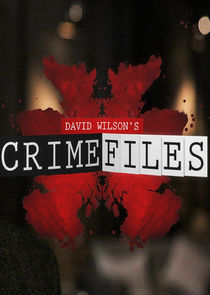David Wilson's Crime Files S03E04 - Public Appeals

Sinopse
Professor David Wilson, the UK's leading criminologist, presents the third series of the crime talk show Crime Files. This season David is focusing primarily on Scotland's Cold Cases. In episode 4, he explores the relationship between cold cases and the media with the help of his guests.
David begins by travelling to The Granite City: Aberdeen. Here he delves into the cruel and vicious attack on a local taxi driver, George Murdoch in 1983. George was left for dead after picking up a ruthless killer on a dark September evening. So brutal and unusual was the cheese wire murder weapon found at the scene, that the culprit was inevitably dubbed the "Cheese Wire Killer".
In the studio, David is joined by George Murdoch's nephew, Alex McKay. Together they discuss the difficulty when years begin to pass and leads run dry, when there's little else the police can do and it's up to the family to take matters into their own hands. Alex shares what it's like for the family when a case goes cold and his concern for his uncle's murder remaining unanswered.
David then ventures to Irvine to examine the tragic death of young mother, Shona Stevens in 1994. At lunchtime, Shona had left the house to nip to the local shops, but on her return she was savagely attacked and left for dead only 200 yards away from her home. Shona's brutal murder sent shockwaves through the local and wider communities, so much so that it has been featured on Crimewatch twice.
In the studio David is joined by Daily Record's Crime Reporter, Jane Hamilton. Jane tells David why Shona's case made national headlines and the relationship between police investigations and press media.
David's final guest is criminologist Kirsty Bennett. Kirsty is a specialist in policing and cold case homicides. She and David discuss why certain cases might be favoured by the media and the benefits and pitfalls of mass media attention. They divulge what is meant by the term ‘the ideal victim' and why the public might have more empathy with these sorts of people.
Informações
- Status: Transmitido
- Data de Exibição: 04/10/2022
- Emissora:
 BBC iPlayer
BBC iPlayer